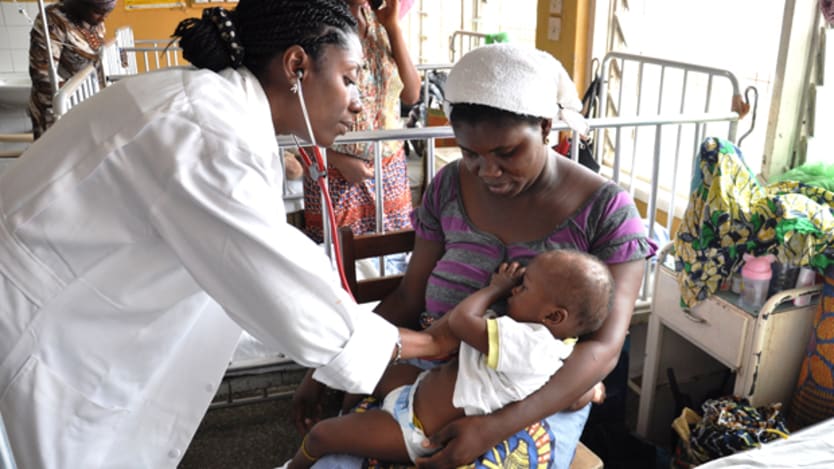
If countries are healthier and more prosperous, then we all benefit. After all, global health means economic health.
This is one reason why many governments in wealthier countries have helped fund disease prevention in developing countries, far outside their borders. It’s the right thing to do, but it’s also smart policy. Global health is a fundamental cornerstone of a vibrant global economy.
In particular, children’s health — starting with immunization — has the power to fundamentally change the economic progress of developing countries beyond the basic benefit of saving lives and improving health. Vaccines are a far better value than treating disease. By keeping people healthy, vaccines also help break the cycle of poverty, enabling children to be better nourished and go to school; parents to work more productively; and countries thereby to attract foreign investment that brings trade, infrastructure and technology.
Healthy kids mean healthy families, communities and societies. This makes the economic, education and labor impact of vaccines immense. It is truly a proven, sustainable approach to development. But with government budgets squeezed and many on-the-ground challenges outside of their expertise, governments cannot do this alone. How do we get to the next level? Businesses have the ability to rally the public by providing solutions and applying know-how to problems of any size. One example of this public-private partnership model is my organization, the GAVI Alliance, whose mission is to save children’s lives and protect people’s health by increasing access to immunization in developing countries. Since 2000, GAVI has helped immunize more than 440 million children and prevent 6 million deaths in the process.
The private sector has become an important partner in this cause. There is a growing corporate awareness that the world’s biggest health challenges — including how to reach the 22 million children who go un-vaccinated each year — also have profound economic implications. Vaccine-preventable diseases, such as pneumonia, measles and deadly diarrhea, take an enormous toll on people in developing countries. Companies recognize that their competitiveness and the health of communities where they do business are mutually dependent. We all are stakeholders.
It is imperative that both the public and private sectors work together. Businesses have invested in GAVI because they know that one of the strongest ways to promote global health is through immunization. And quite simply, vaccines provide a strong return on investment. Through collaboration between the public and private sectors, GAVI has been able to raise additional funds and, most importantly, bring significant private-sector expertise, skills, advocacy and visibility to its work:
- Vodafone is working with GAVI to deploy mobile health technology in 90 remote health facilities in Mozambique to increase immunization coverage, reduce dropout rates and improve vaccine stock management. Vodafone’s mobile technology will enable health workers to register, update and search vaccine records, send targeted alerts and reminders to caregivers, monitor vaccine stocks via mobile phones and provide near-instant reports for health workers and managers.
- ELMA Foundation is funding GAVI’s new Supply Chain Fund to help quickly overcome roadblocks in delivering temperature-sensitive vaccines to remote areas.
- Lions Club and LDS Charities each have deployed global networks of volunteers to help GAVI publicize vaccination programs, provide vaccine services and educate families about preventable diseases.
- Comic Relief has highlighted the benefits of immunization to millions of people in the U.K. through BBC telethons and through its partnership with British Airways.
- Spanish bank La Caixa has raised significant funds for GAVI through its foundation by engaging its employees and the Spanish business sector in supporting immunization programs.
Smart business leaders know that success often follows those who make a positive impact on the lives of future customers. As a result, many companies are expanding beyond traditional philanthropy and instead favoring initiatives that make a measurable and long-term impact on individual lives and entire economies.
Funding and supporting the delivery of life-saving vaccines is one proven way that the private sector can obtain measurable, long-term and extremely cost-effective results.
The GAVI model is designed as a sustainable approach that puts countries on track to self-sufficiency. If we — the public and private sectors — collectively seize the moment, we can accelerate progress toward a world where every child, everywhere, is fully immunized. And we all will be better for it.
This story is part of Best Buys in Global Health, a campaign by PSI, PATH and Devex to highlight sound investments in global health. Find out more.
Search for articles
Most Read
- 1
- 2
- 3
- 4
- 5








